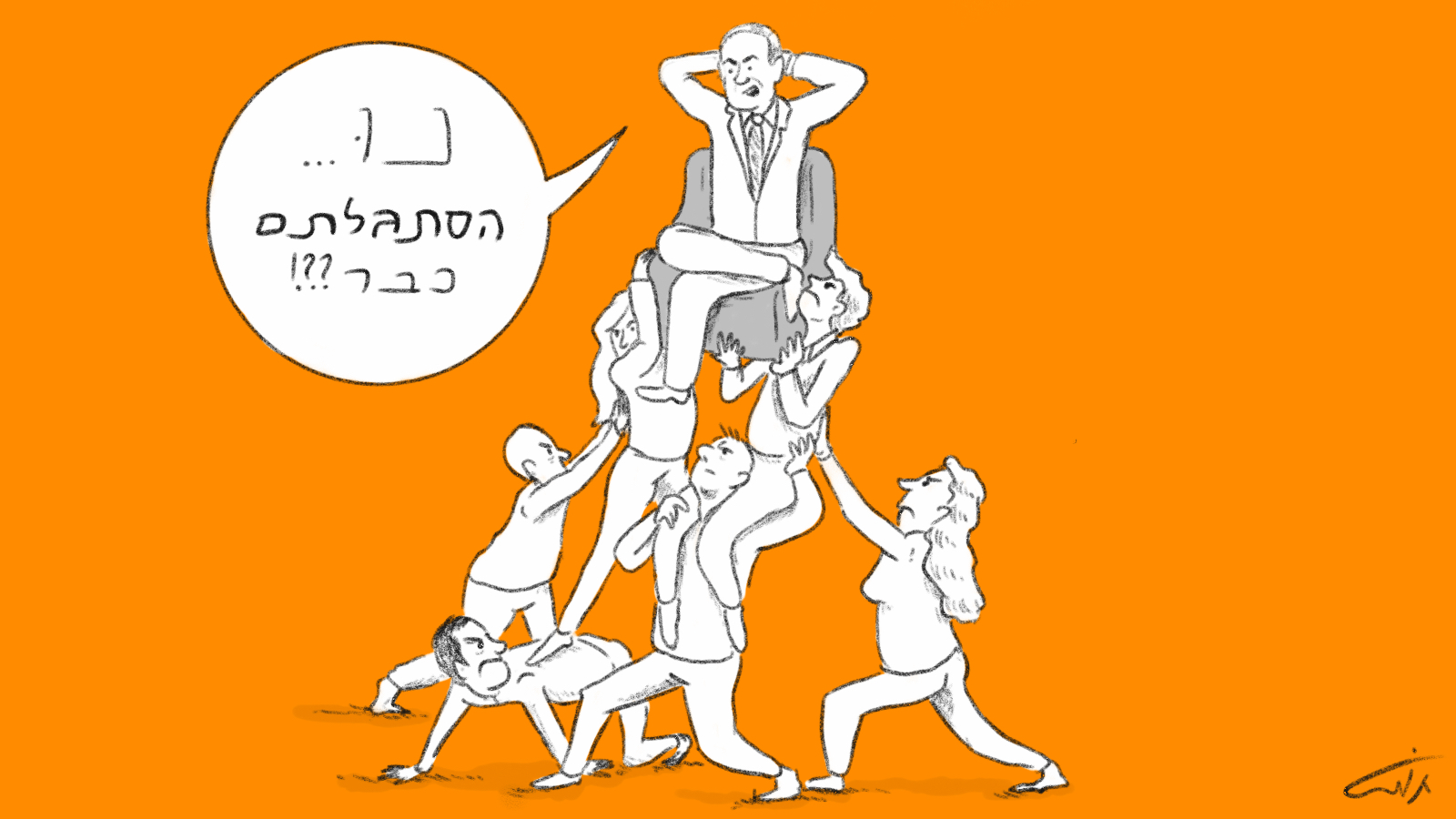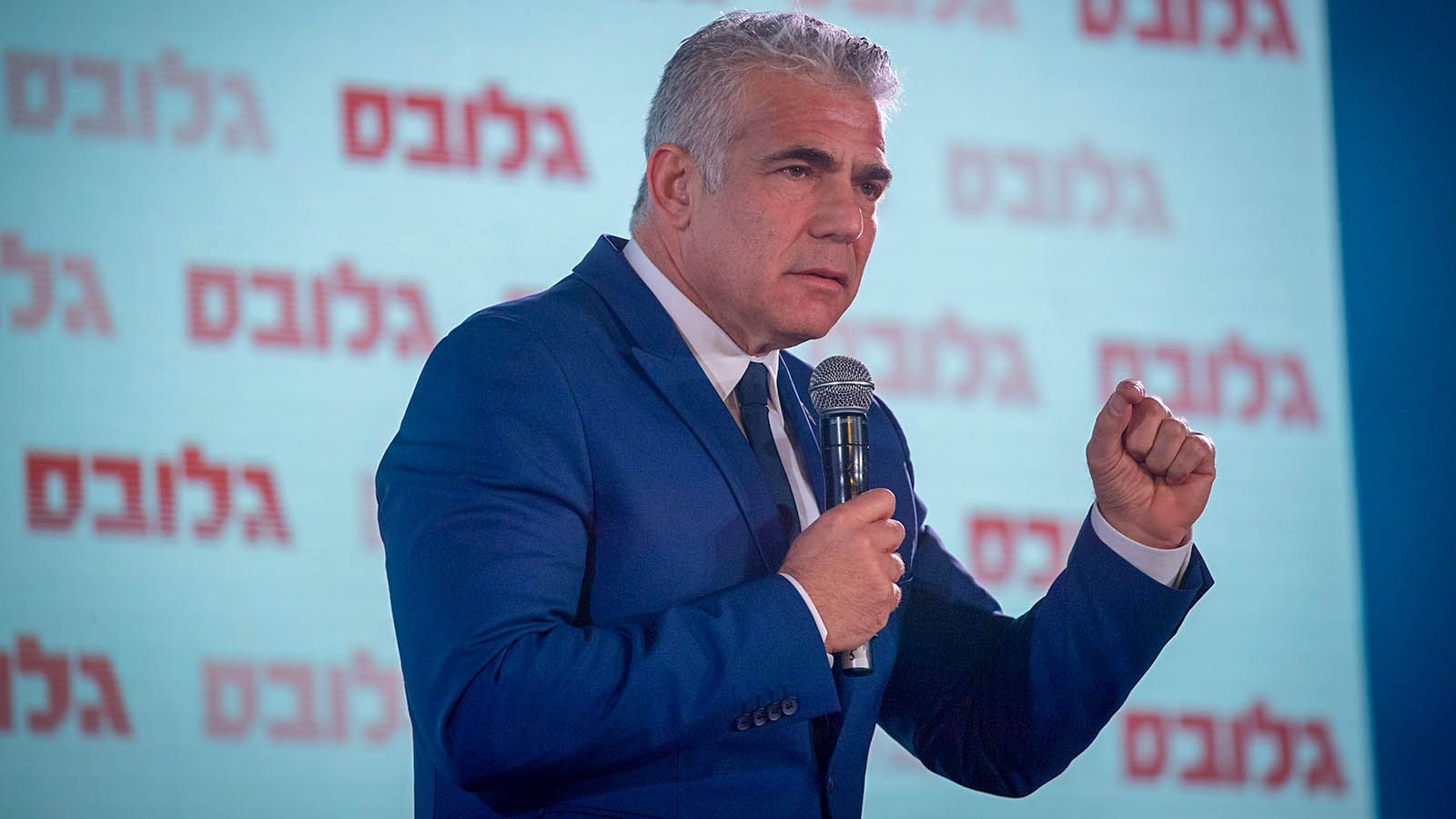It has been several days since Prime Minister Netanyahu gave an extraordinary performance in a conference held by the "Globes" newspaper, but it would be safe to say that the political meanings of that appearance have yet to be fully understood. Well, here's my conclusion: Netanyahu is going to be Israel's prime minister for a very long time, after the coming elections, perhaps also after the following elections.
How did I reach that conclusion? Well, it's simple – he has no rivals. That is not to say that there are no politicians that claim they should replace him – on the contrary: Yair Lapid and Avi Gabbay, and also Tzipi Livni – Gabbays' so called partner – all have their claim for Prime-Ministerial fame. But none of the above, nor any of the other leading politicians, present a different economic approach.
From the economic side of the debate all the Israeli voter has to choose from are different shades of the same free market capitalism ideology based on austerity measures which are slowly dismantling the Israeli public sector, hurting low income citizens, who rely on public services for survival. There is no reason to think the Israeli public would choose a Netanyahu-look-alike over the original, especially when you add on top of that the illusion that you get a security and foreign affairs wizard, as he is seen by most of the Israeli public.
Netanyahu couldn't hope for more convenient circumstances. His long appearance last week in Jerusalem included rare moments of sincerity. He confessed, and it was a first as far as I know, that the reason the Likud saw its' all time low of 12 Knesset seats in the 2006 elections was the fact that he caused damage to the low-income population as Minister of Finance.

"Our reforms", said Netanyhu 25 minutes into the somewhat awkward open conversation between him and "Globes" owner Alona Baron, "such as taking away allowances or diminishing subsidies, cost me great political capital. We fell to 12 seats". Earlier that day in his lecture-like presentation Netanyahu showed a graph of the Gini Index in Israel over the years – the rise in the social economical gaps during Netanyahus' tenure as Minister of Finance was clear and blunt. Taking social benefits away from the poor was essential according to Netanyahu, because what followed was that "the poor adjusted themselves and started working", leading eventually (from Netanyahus' point of view), to a lower Gini Index ratio and smaller gaps between the poor and the rich.

This claim is so outrageous that it's strange that none of his opponents criticized him about it, when they had the chance shortly after Netanyahu left the stage. Instead of calling out the immoral and Darwin-like social theory presented by the Prime Minister – as if there could be an economic rationale for throwing hundreds of thousands of households into poverty, in order for the poor to "adjust" and "go to work", Lapid and Gabbay took the stage and competed over who could present an even-more-extreme-capitalist approach.
Lapid took credit for the fact that during his tenure as Minister of Finance he did not submit to any "Populist" demands and maintained a "responsible" policy of lowering the deficit. Not lowering the high poverty rates, mind you, but lowering the deficit. "The people in this room know all to well", said Lapid in his newscaster voice, "that the economy blossoms in those areas that are free of government intervention". He might as well have added the slogan of the French liberals "lassier Faire", let us go. The fact that the Israeli tech industry was funded by the Israeli public and developed in the public hub of universities does not change the thoughts or slogans the politicians use.

It would take an optimist to think that Gabbay, the head of the Israeli Labor Party, would present a different stream of thought. Last week in Jerusalem Gabbay showed himself to be more Netanyahu than Netanyahu. "We will make the public sector more efficient," he promised, and talked about more doctors and nurses for less public money. It is an incredible situation: the head of what is supposed to be a left-wing party is suggesting weakening our shattered, broken-to-pieces public sector. This, in the state of Israel, which has one of the lowest rates of public spending in the OECD, after more than 130 billion NIS were cut from its budget. Just a week ago the government released 1,000 criminals – arguably the victims of broken education and welfare systems – back to the streets after failing to produce proper prison conditions due to lack of budget.
Gabbay has a wild card up his sleeve, or so he believes. He was the only minister to oppose the scheme to develop Israeli natural gas fields. It's true that he opposed the scheme, but let us bear in mind what would have happened if Gabbay's objection would have been implemented into the scheme – it may have spared the average Israeli house hold 7 NIS a month on the electricity bill, as of January 2019.
So, is this what the Labor party has to offer in the coming elections? 7 NIS a month less on the household electricity bill and budget cuts for a more "efficient" public sector that will pass more of the economic burden on to the average household? Is that something to win an election with?
Netanyahu is so sure of himself that he practically flaunted his weak spot in front of his adversaries: his personal responsibility for the agony of the poor. Ever since 2006 he has made many efforts to distance himself from his responsibility to the economic state of the poor. That's one of the reasons he appointed ministers of finance who are not from his own party, which contradicts long-held tradition in Israeli politics – and that's also why he rarely refers to economic issues, except on his appearances abroad.
It seems there is a good reason for Netanyahu's self-confidence. There is no one to challenge him on these issues, anyway. One can only wonder what would have happened if the left-wing parties – Labor and Meretz – had elected different leaders a year back. Just imagine if Amir Peretz would have won the Labor primaries and Ilan Gilon would have won Meretz. These two, renowned for their long-held social agenda, may have been able to harness the energy of the majority hurting under Netanyahu's policies.
Amir Peretz beat Netanyhu back in 2006 in what were considered Likud strongholds – development towns, small towns in the periphery of Israel. Just imagine that Netanyhu's glitch, calling a protester in Kiryat Shmona "boring", had occurred while Amir Peretz was leader of the opposition. We may have seen what happened 13 years ago, after Vikki Knaffo held her protest – a political shift that made Netanyahu pay, with political capital, for his policies.

But the Israeli left wing is so fragile, that it let fate decide its path. Ilan gilon dropped out of the race due to health reasons, and about two months ago it was revealed that Amir Peretz suffered from Cancer during his campaign. The left wing parties elected neoliberal figures (Zandberg in Meretz, Gabbay in Ha'avoda) and distanced themselves from social issues.

Some politicians left the Globes conference early, without taking the stage – in protest of the disproportionate amount of time given to Bibi. They were not mistaken: the conference resembled the scene in the 2015 elections, when the director of "Meet the Press" broadcast Netanyahu on a large screen and had Isaac Hertzog sit in front of it, damaging his public image. In these conditions Netanyahu looked like Gulliver on his voyage to Lilliput.
So the big question for the coming elections is: Will Netanyahu meet his match? Is there an ideological adversary who will present a different agenda for voters to choose? Without a rival, the words "Prime Minister Netanyahu" will open news broadcasts for many years to come.








